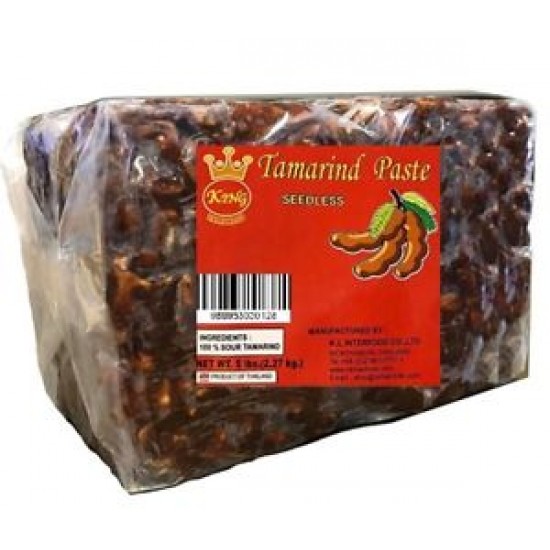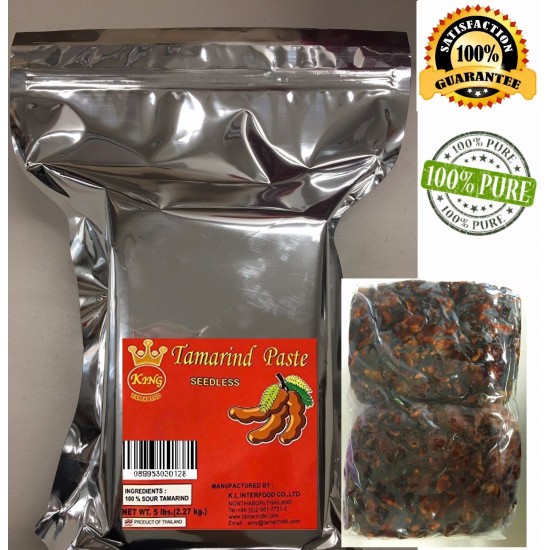Tamarind Paste helps with Digestive health, Heart health, Blood sugar, Joint health














- Stock: 999
- Model: 222594065629
- SKU: 222594065629
Available Options
Tamarind (Tamarindus indica) is a leguminous tree in the family Fabaceae indigenous to tropical Africa. The tamarind tree produces edible, pod-like fruit which is used extensively in cuisines around the world, such as Indonesia, Malaysia, the Philippines, the Pacific Islands, Latin America, and the United States. The edible fruit pulp is green and sour when unripe. The unripened pulp is used for more savory dishes as a pickling agent. As the fruit ripens, it becomes more palatable and sweeter. Ripened fruit is used in jams, juices, sorbets, ice creams, and other snacks.
Tamarind is a fruit that has been used in traditional medicine for centuries, and has been shown to offer several potential health benefits, including:
Digestive health: Tamarind is rich in dietary fiber, which can help to promote regular bowel movements and support healthy digestion. It has also been shown to have a laxative effect, which may be helpful for people with constipation.
Heart health: Tamarind contains compounds called polyphenols, which have been shown to have antioxidant and anti-inflammatory effects. These properties may help to reduce the risk of heart disease by lowering blood pressure and cholesterol levels.
Blood sugar control: Tamarind has a low glycemic index, which means that it does not cause a rapid spike in blood sugar levels. It also contains compounds that may help to improve insulin sensitivity, which can be helpful for people with diabetes.
Joint health: Tamarind contains compounds called polysaccharides, which have been shown to have anti-inflammatory properties. This may make it helpful for reducing joint pain and inflammation in conditions such as arthritis.
Immune system support: Tamarind is a rich source of vitamin C, which is essential for a healthy immune system. It also contains other antioxidants that can help to protect the body against damage from free radicals.












